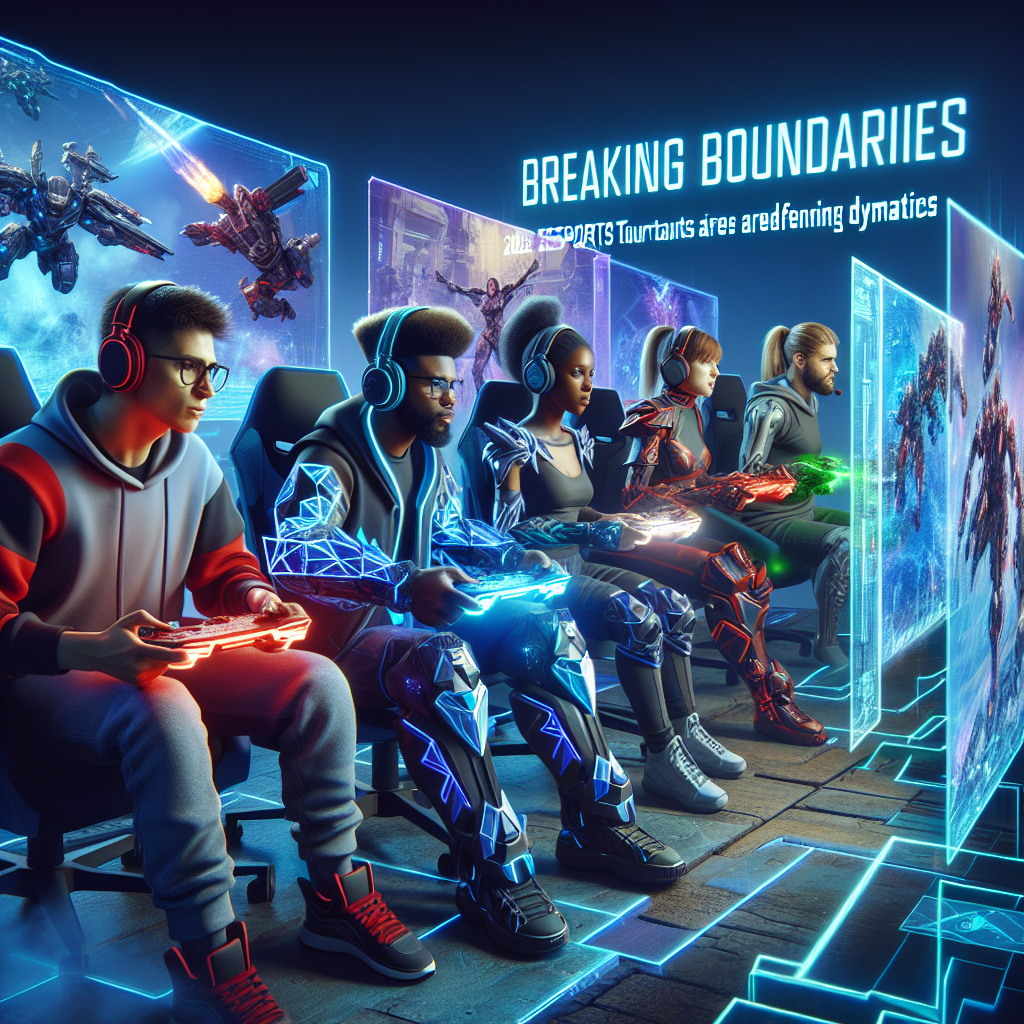Breaking Boundaries: How the 2025 Esports Tournaments are Redefining Team Dynamics
As we stride deeper into the digital age, esports has emerged as a formidable force in the realm of competitive entertainment, eclipsing traditional sports in viewership and engagement. The year 2025 marks a pivotal turning point for the industry, with a series of groundbreaking esports tournaments set to challenge and redefine team dynamics in ways never seen before. These developments are not merely about the games themselves; they reflect a broader transformation in how teams interact, compete, and engage with their fans and communities.
The Rise of Hybrid Teams
One of the most notable trends of the 2025 esports landscape is the emergence of hybrid teams that blend talent from different backgrounds, cultures, and even genres. Gone are the days when teams were dominated by a homogenous lineup of players from a single game title or region. The top esports tournaments of 2025 showcase multi-disciplinary teams that consist of players excelling in various titles, such as League of Legends, Dota 2, and VALORANT, bringing diverse skill sets and strategies to the table.
This shift allows teams to cultivate a deep strategic flexibility, where players can adapt to multiple meta-game shifts and capitalize on each other’s strengths. The synergy created by players with varied experiences fosters innovation, transforming team dynamics into collaborative ecosystems where strategic experimentation flourishes.
Emphasis on Mental Wellness and Performance Coaching
As competitive pressures escalate, the need for mental health support and performance coaching has become paramount. The tournaments of 2025 reflect this trend by prioritizing the well-being of players both inside and outside the gaming booth. Team dynamics are now anchored in mental health advocacy, with organizations hiring psychologists and performance coaches to support players.
This change has fundamentally altered how teams function. Players are encouraged to express their mental health challenges openly, creating a culture of empathy and resilience. Teams that prioritize mental wellness not only foster stronger relationships among players but also build an environment where creativity and performance can thrive. Organizations that invest in these resources are reaping the rewards, as players exhibit improved performance and lower burnout rates.
Technology as a Team-Building Tool
The advent of technology in esports has also transformed team dynamics. In 2025, advanced analytics platforms offer real-time performance data, enabling teams to dissect gameplay on a micro-level. This data revolution fosters an environment where decisions are made collectively rather than dictated by a single captain or coach.
Additionally, Virtual Reality (VR) and Augmented Reality (AR) training modules have entered the training regimes of top teams, allowing players to immerse themselves in team scenarios without the pressure of competition. These interactive experiences not only sharpen skills but also reinforce camaraderie among team members, who navigate challenges collaboratively in simulated environments.
Fan Engagement and Community Integration
Perhaps one of the most innovative ways the 2025 tournaments are reshaping team dynamics is through enhanced fan engagement. Teams are no longer isolated entities; they have evolved into community-focused organizations. With the advent of integrated live-streaming platforms, fans can participate in the team’s training sessions, scrimmages, and even strategic discussions.
This transparency creates a two-way interaction where fans feel a sense of ownership and involvement in the team’s journey. Teams are recognizing the importance of building a loyal fanbase that contributes to their success, and in doing so, they transform their internal dynamics into collaborations that encompass players, coaches, management, and audience members.
Collaboration with Traditional Sports
As esports continues to parallel the traditional sports world, we are witnessing collaborations that further redefine team dynamics. The blurring of lines between esports and mainstream sports has given rise to hybrid coaching models, where sports psychologists, nutritionists, and training specialists from traditional athletic backgrounds provide insights and strategies to esports teams.
These collaborations help esports athletes adopt best practices from traditional sports, integrating physical fitness, nutritional regimens, and tactical preparation into their routines. This comprehensive approach to training promotes discipline and fosters a unique team culture that embraces both gaming and sporting fundamentals.
Conclusion: The Future of Team Dynamics
The esports tournaments of 2025 are more than competitive spectacles; they symbolize a new era of collaboration, understanding, and innovation in team dynamics. As hybrid teams emerge, mental wellness takes center stage, technology enhances performance, and fan engagement redefines team relationships, the future of esports looks promising.
With each passing tournament, the boundaries of what it means to be a team in the world of competitive gaming are continuously expanding. As organizations adapt to these changes, they not only break the mold of traditional competition but also pave the way for a richer, more inclusive environment that celebrates diversity, wellness, and community. In doing so, the esports industry is not just redefining its dynamics; it is reshaping the very fabric of competitive gaming for generations to come.




